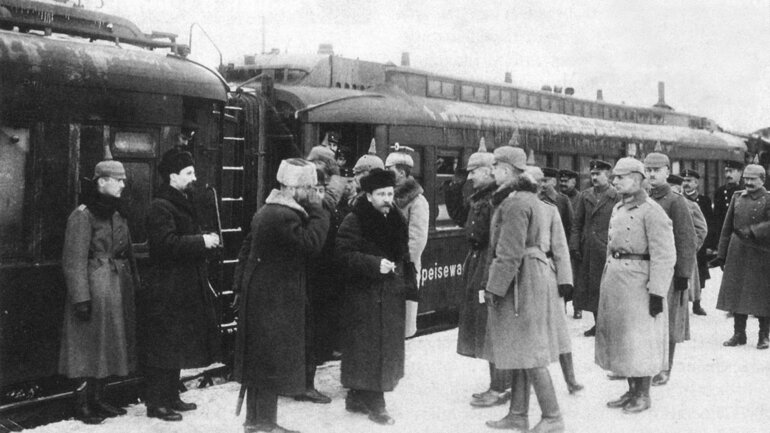Brest-Litovsk: A Peace Deal in Wartime

For more than two decades, Uzbekistan was synonymous with stagnation, dictatorship, economic crisis, corruption and isolation. Since succeeding the country’s longstanding first President Islam Karimov in autumn 2016, Shavkat Mirziyoyev has attempted to address a vast backlog of reforms, introduced various domestic and economic liberalisation measures and opened Uzbekistan to the world. Thus far, however, his reforms have – for the most part – been neither structural nor sustainable, and there is still much to do, particularly to improve the human rights situation. The general view is that this does not reflect any absence of reforming zeal on the President’s part but results from his lack of an adequate power base from which to rein in powerful spoilers – first and foremost the SNB and its chief Inoyatov.
An inglorious career
The 73-year-old Rustam Inoyatov was the head of Uzbekistan’s powerful National Security Service (SNB) from 1995. Although a largely invisible presence, his name alone was enough to inspire fear and dread in the Uzbek population, associated as it was with arbitrary arrests, torture, and other grave human rights abuses. Inoyatov achieved tragic notoriety in 2005 when security forces in Andijan fired without warning on a crowd of peaceful protesters, killing 87 of them. That’s the official statistic; the unofficial figure is more than 1,000. Inoyatov has been described as “one of the most ruthless figures in all of the post-Soviet space” – and for good reason.
The SNB was set up in 1991 as the Uzbek successor to the Soviet KGB. Its remit initially consisted of intelligence-gathering and combating organised crime, but under Inoyatov, it became the most powerful and secretive agency in the country. The precise number of SNB employees is unknown but is thought to have increased several times over under Inoyatov’s leadership following internal power struggles, which resulted in its incorporation of military intelligence, the Interior Ministry’s special forces and the border security and customs agency.
With this all-encompassing surveillance apparatus, the SNB was the most important prop shoring up Islam Karimov’s dictatorial regime. The President expressed his gratitude through lavish financial rewards, some of them beyond the bounds of legality, bestowed not only on the SNB chief but on the lower echelons as well. According to experts, the SNB had exclusive access to the forex black market and, among other things, also siphoned off profits from foreign trade.
A struggle for power
Under these circumstances, it’s hardly surprising that the SNB and its chief were firmly opposed to the reforms initiated by Shavkat Mirziyoyev. In early 2017, it was still apparent that the new President lacked a firm grasp on power: clearly under pressure from within, Mirziyoyev was forced to delay the introduction of visa-free travel for citizens of 27 countries, including Germany, which he had announced three weeks earlier. The SNB’s resistance to reforms was evident not only in the security sector but in the economic sphere as well; for example, it opposed the return of the European Bank for Reconstruction and Development (EBRD) to Uzbekistan, partly due to the Bank’s insistence on the liberalisation of the foreign exchange market. This time, however, the advocates of reform scored a notable victory. As 2017 progressed, Mirziyoyev managed to push through more decisions which are unlikely to have pleased Inoyatov, one being the removal of his deputy Shukhrat Gulyamov, who was sentenced to life imprisonment in August 2017, another being the decision to return the country’s special forces to the Interior Ministry’s control.
In December 2017, matters came to a head with an open declaration of war. In a speech to Parliament, with Inoyatov present, Mirziyoyev criticised the excessive and arbitrary power of the SNB and announced new legislation to control the security service. This was followed by an announcement on 16 January 2018 that SNB agents stationed in embassies abroad had been recalled. The “resignation” of the security chief on 31 January seems to have been the next logical step. Inoyatov was appointed as a senator and presidential advisor the same day, although it remains to be seen whether this will protect him from criminal prosecution in the longer term. His successor is Ikhtiyor Abdullayev, a 52-year-old former chief prosecutor with no career history in the KGB.
A partial victory
Mirziyoyev apparently entered office in late August 2016 as a result of internal negotiations, his appointment only then confirmed by public vote. Over the course of 2017, he had no option but to build up a power base through skilful personnel policy. With Rustam Inoyatov, he has now rid himself of one of the last – and the most powerful – members of the old guard. This is undoubtedly an important – probably the crucial – step in securing his own power position within the elite, thereby increasing his scope for broader reforms. He must now demonstrate the real strength of his reform commitment and reveal to what extent his reforms were genuinely blocked by Inoyatov and Co.
So far, neither the SNB nor Uzbekistan itself has undergone a radical shake-up. It is all very well for individual politicians to initiate reform from the top down, but successful implementation of the reform agenda will depend on support from the lower tiers of government and the public at large. Here, a degree of scepticism is called for. Mirziyoyev frequently expresses – justified – criticism of the passivity and intractability of the country’s civil service. Although life will undoubtedly be easier for everyone without the constant fear of an all-powerful security service, Uzbekistan’s path towards the rule of law and a market economy – assuming this is where it is heading – is likely to be a long one.
Prof. Dr. Nikolaus Katzer is director of the German Historical Institute Moscow.